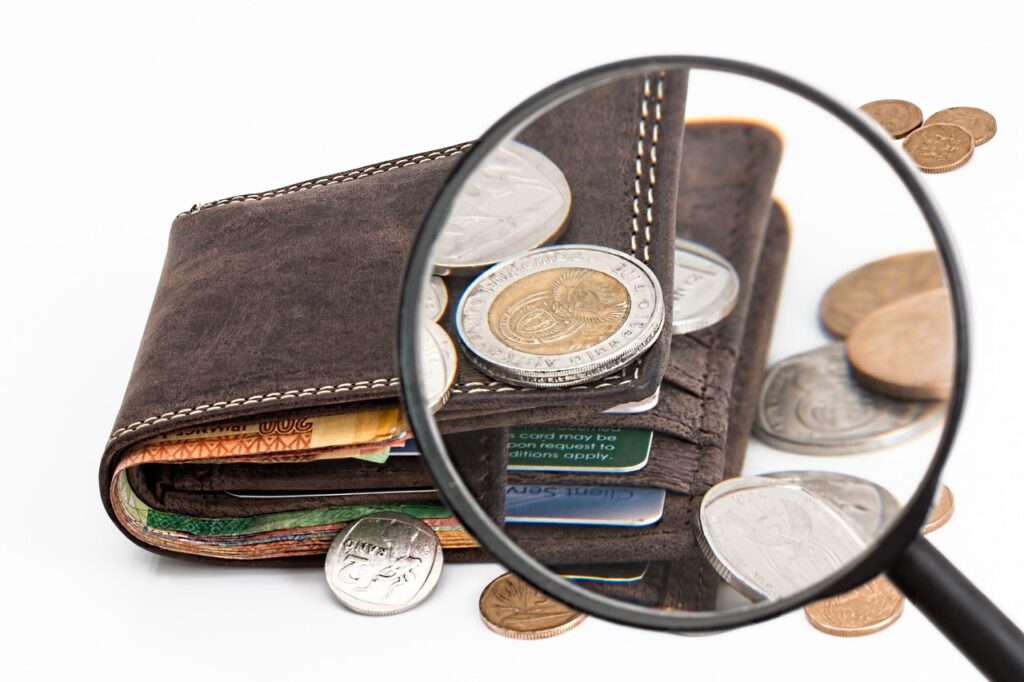In the world of payment options, credit cards and debit cards reign supreme. But when it comes to making the best financial choice, how do you decide between the two? Both cards offer convenience and security, but they also come with their own set of pros and cons. In this article, we’ll break down the similarities and differences between credit cards and debit cards, helping you make an informed decision that suits your financial needs. Whether you’re a seasoned cardholder or a first-timer, understanding the benefits and drawbacks of each option is essential in maximizing your financial well-being. So, let’s explore the world of credit cards and debit cards and find out which one is the best fit for you!
Benefits of Credit Cards
Rewards and cash back programs
Credit cards often offer rewards and cash back programs that can benefit you in a variety of ways. By using your credit card for everyday expenses and monthly bills, you can accumulate reward points or cash back that can be redeemed for travel, merchandise, or even statement credits. This allows you to enjoy additional perks and savings simply by using your credit card for purchases you would already be making.
Building credit history
One of the significant advantages of using a credit card responsibly is the opportunity to build your credit history. By consistently making on-time payments and keeping your credit utilization low, you can demonstrate to lenders that you are a responsible borrower. Having a positive credit history makes it easier to obtain loans, such as a mortgage or car loan, at favorable interest rates in the future.
Protection against fraud and unauthorized transactions
Credit cards also offer protection against fraud and unauthorized transactions. Most credit cards include zero liability policies, meaning you won’t be held responsible for fraudulent charges made on your card. Additionally, credit card companies have advanced fraud detection systems in place, which can help identify and prevent unauthorized transactions. This provides you with peace of mind and financial security when using your credit card for both in-person and online transactions.
Drawbacks of Credit Cards
High interest rates
One of the significant drawbacks of credit cards is the high interest rates that are associated with carrying a balance. If you don’t pay off your credit card balance in full each month, you will be charged interest on the remaining balance. These interest rates can be considerably higher than other types of loans or lines of credit. It’s important to be mindful of this and only use your credit card for purchases you can afford to pay off promptly to avoid excessive interest charges.
Potential for debt accumulation
Credit cards can also lead to potential debt accumulation if not used responsibly. The ease of swiping a credit card can lead to impulsive spending or overspending beyond your means. This can quickly snowball into a significant amount of debt if you are not careful. It is crucial to have a budget in place and exercise self-discipline when using your credit card to avoid falling into a cycle of debt.
Annual fees
Some credit cards may come with annual fees, which can be an additional cost to consider. While many credit cards offer rewards and benefits that can outweigh the annual fee, it’s essential to assess whether the benefits are worth the cost. If you do opt for a credit card with an annual fee, be sure to take advantage of the card’s perks and rewards to maximize the value you receive.

Benefits of Debit Cards
No interest or debt accumulation
Unlike credit cards, when using a debit card, you are essentially spending money that you already have. Debit card transactions are deducted directly from your checking or savings account, so there is no potential for debt accumulation. By using a debit card, you can avoid interest charges altogether.
Immediate access to funds
With a debit card, you have immediate access to your funds, allowing you to make purchases or withdraw cash without the need to carry large amounts of cash. This can be particularly beneficial in situations where quick and easy access to funds is necessary, such as emergencies or unexpected expenses.
No risk of overspending
Debit cards offer a built-in safeguard against overspending. Since the amount you can spend is limited to the funds available in your account, it helps to ensure that you do not exceed your financial means. This can be especially advantageous for individuals who struggle with impulse buying or have difficulty managing their spending habits.
Drawbacks of Debit Cards
No credit-building opportunity
While debit cards offer convenience and financial control, they do not contribute to building your credit history. Since debit card transactions are not reported to credit bureaus, they do not have any impact on your credit score. If you’re looking to establish or improve your credit, relying solely on debit card usage will not help you achieve this goal.
Limited fraud protection
Compared to credit cards, debit cards offer limited protection against fraud. While most banks and financial institutions have measures in place to detect and prevent fraudulent transactions, if unauthorized charges are made on your debit card, recovering the funds may be more challenging and time-consuming. It’s important to monitor your account regularly and report any suspicious activity immediately to minimize potential losses.
Transaction holds and disputes
Debit card users may encounter transaction holds or delays in resolving payment disputes. In certain situations, such as booking a hotel or renting a car, a temporary hold may be placed on your account for an amount greater than the actual purchase. This can tie up your funds and impact your available balance until the hold is released. Additionally, resolving payment disputes or fraudulent charges on a debit card may require more effort and time compared to the consumer protections offered by credit cards.

Acceptance and Usage
Widespread acceptance of credit cards
Credit cards are widely accepted in most establishments, both domestically and internationally. From small businesses to large retailers, credit cards are a convenient form of payment that allows you to make purchases without the need for cash. Whether you are shopping online or traveling abroad, credit cards provide the flexibility to make transactions efficiently.
Variability in debit card acceptance
While debit cards are generally accepted at most businesses, there may be instances where they are not accepted, especially when it comes to online or international transactions. Some smaller merchants or businesses might only accept cash or credit cards, limiting your options for payment. It’s always a good idea to have a backup form of payment, such as a credit card or cash, in case your debit card is not accepted.
Accessibility and convenience
Both credit and debit cards offer accessibility and convenience in their own ways. Credit cards provide access to a line of credit, allowing you to make purchases even when you may not have sufficient funds in your bank account. Debit cards, on the other hand, provide immediate access to your own money without the need to carry cash. The choice between the two ultimately depends on your individual financial situation and spending habits.
Financial Responsibility
Managing monthly credit card payments
To maintain financial responsibility with credit cards, it’s important to manage your monthly payments effectively. Make it a habit to pay your credit card balance in full and on time each month to avoid late payment fees and interest charges. Setting up automatic payments or reminders can help ensure that you never miss a payment and stay on top of your credit card balances.
Staying within budget with debit cards
With debit cards, staying within your budget is more straightforward since you can only spend what you have in your account. Keep track of your transactions and maintain a budget to avoid overspending. Regularly review your bank statements to identify any discrepancies or unauthorized charges that may require your attention.
Avoiding unnecessary fees and penalties
Both credit and debit cards can come with fees and penalties if not used responsibly. Be aware of the terms and conditions associated with your cards, such as annual fees, overdraft charges, or late payment fees. By understanding and adhering to these terms, you can avoid unnecessary fees and penalties, which can help you maintain better control over your finances.

Credit Utilization and Credit Score Impact
Credit utilization ratio and its effect on credit score
Credit utilization ratio refers to the percentage of your available credit that you are currently using. It is an important factor in determining your credit score. Keeping your credit utilization ratio low, ideally below 30%, demonstrates that you are using credit responsibly and not relying heavily on borrowed funds. By using your credit card strategically and keeping your balances low, you can positively impact your credit score.
Credit limits and creditworthiness
Your credit card’s credit limit plays a role in your creditworthiness. Lenders consider your available credit as an indicator of your financial stability and ability to repay debt. By maintaining a low credit utilization ratio and having a higher credit limit, you can demonstrate responsible credit card usage and improve your creditworthiness over time.
Balancing debit card usage to maintain credit score
While debit cards do not directly impact your credit score, it’s essential to use them strategically in conjunction with credit cards to maintain a healthy credit score. By using your debit card for day-to-day expenses and saving your credit card for larger purchases or emergencies, you can ensure responsible credit utilization while still utilizing the financial control and immediate access offered by debit cards.
Financial Goals and Spending Habits
Aligning cards with saving goals
Choosing the right mix of credit and debit cards can help align with your financial goals. If you have specific savings goals, such as a down payment for a house or a dream vacation, using a credit card with a rewards program can help you accumulate points or cash back that can be put towards your savings. On the other hand, using a debit card for daily expenses can help you maintain better control over your spending habits.
Control over spending with debit cards
For individuals who struggle with overspending or want to maintain strict control over their finances, relying more on debit cards can be beneficial. With a debit card, you can only spend what you have, making it easier to stick to your budget and avoid unnecessary debt. By limiting your exposure to credit cards, you can avoid the temptation to overspend and maintain healthier financial habits.
Lifestyle choices and card preferences
Choosing the right mix of credit and debit cards can also depend on your lifestyle and personal preferences. Some individuals prefer the convenience and flexibility of credit cards, especially when it comes to travel rewards or other exclusive perks. Others may prioritize financial control and opt for debit cards to avoid the risks associated with credit card debt. By understanding your personal preferences and financial goals, you can choose the cards that best suit your individual needs.
Emergencies and Unexpected Expenses
Credit cards as emergency backup funds
Credit cards can serve as a valuable emergency backup fund when unexpected expenses arise. Whether it’s a medical emergency or an urgent car repair, having a credit card with an available credit limit can provide immediate financial assistance. Just ensure that you have a plan in place to pay off the balance promptly to avoid excessive interest charges.
Delayed availability of funds with debit cards
While debit cards provide immediate access to funds, there may be instances where the availability of funds is delayed, causing inconvenience in emergencies. For example, if your debit card is lost or stolen, it may take a few days for the bank to issue a new card or refund any fraudulent charges. Having a credit card as a backup can provide you with peace of mind and ensure that you have access to funds when needed.
Emergency funds management
Regardless of whether you rely on credit or debit cards for emergencies, it’s crucial to have a well-managed emergency fund. Building a separate savings account specifically for emergencies can help you navigate unforeseen financial situations without relying solely on credit cards or depleting your day-to-day funds. Aim to save three to six months’ worth of living expenses to be prepared for any unexpected circumstances.
Choosing the Right Mix
Assessing individual financial needs
To determine the right mix of credit and debit cards for your individual needs, it’s important to assess your financial situation and goals. Consider factors such as your spending habits, financial discipline, credit score, and preferred method of payment. By understanding your unique circumstances, you can make an informed decision on how to best leverage the benefits of credit and debit cards.
Considering card benefits and drawbacks
Evaluate the benefits and drawbacks of both credit and debit cards to make an informed decision. Consider factors such as rewards programs, interest rates, fees, and credit-building opportunities. Choosing cards that align with your financial goals and offer the most advantageous benefits can help you maximize your spending and savings potential.
Utilizing the benefits of both cards
In many cases, utilizing the benefits of both credit and debit cards can offer the most comprehensive financial strategy. Use your credit card for larger purchases or earning rewards, and rely on your debit card for daily expenses and financial control. By striking the right balance and leveraging the advantages of each card, you can optimize your financial well-being and meet your specific goals and needs effectively.
In conclusion, both credit and debit cards offer unique benefits and drawbacks, and choosing the best financial option depends on your individual circumstances, goals, and spending habits. Credit cards provide rewards, credit-building opportunities, and protection against fraud, while debit cards offer immediate access to funds, financial control, and no risk of debt accumulation. By understanding the advantages and disadvantages of each card and aligning them with your financial goals, you can make the best choice that suits your needs and optimizes your financial health. Remember to always practice responsible financial habits and use your cards wisely to maintain a healthy financial future.
